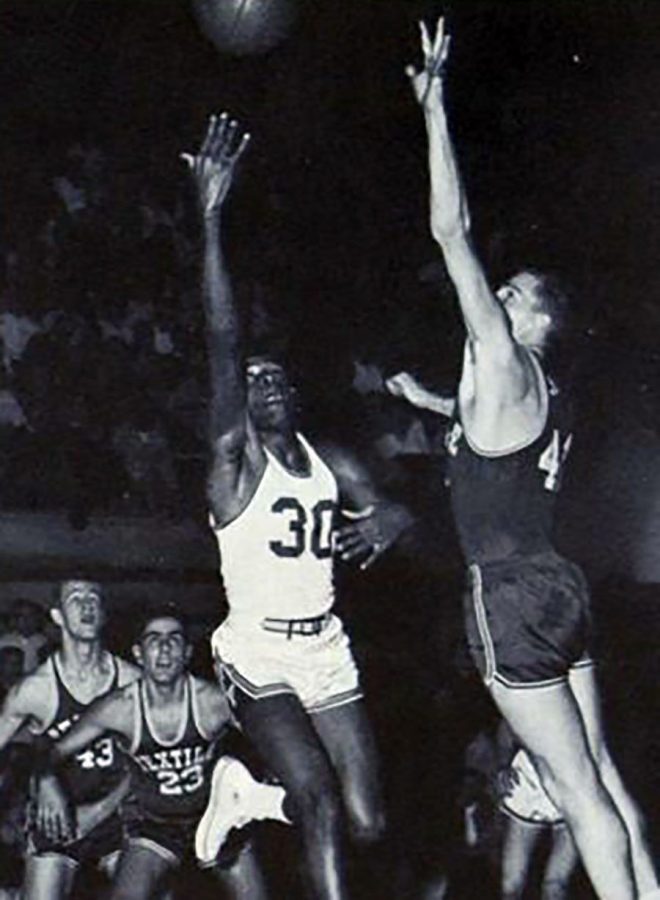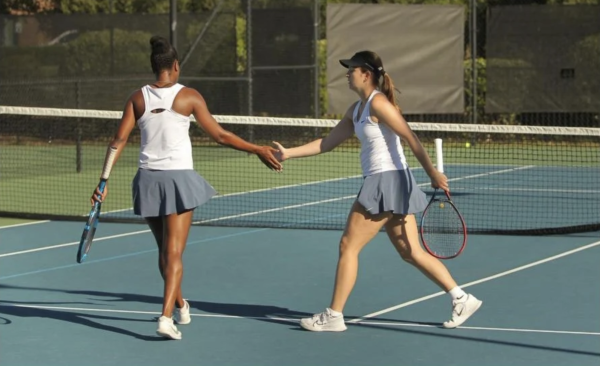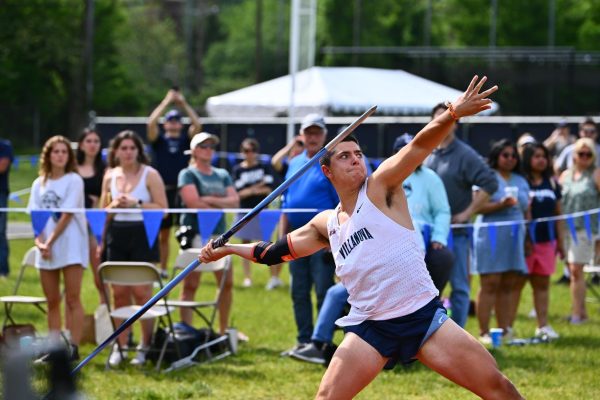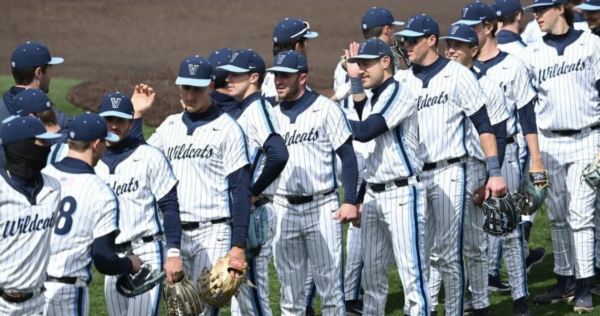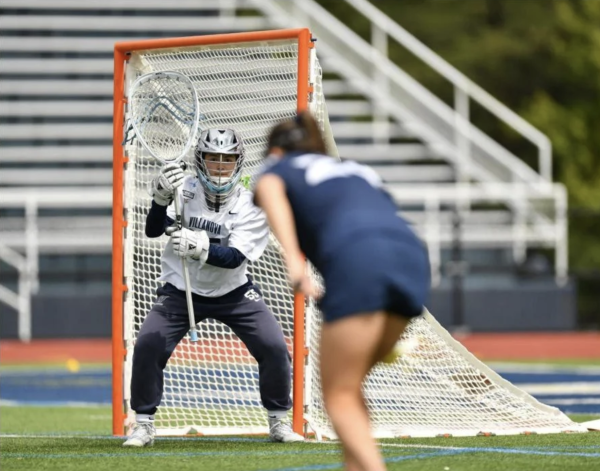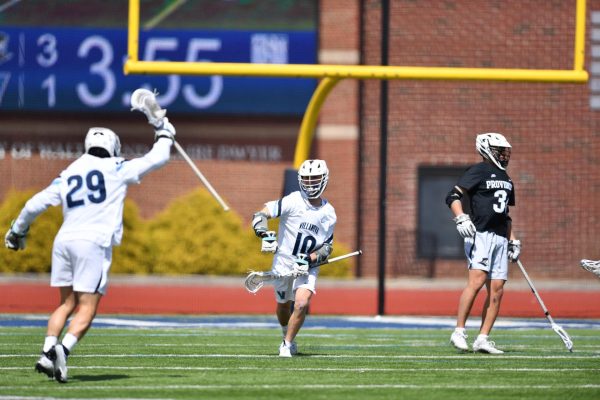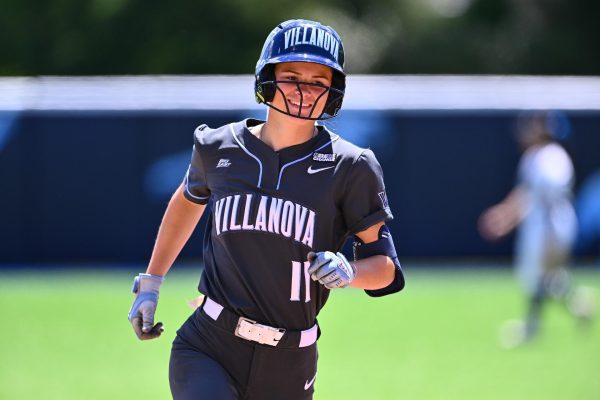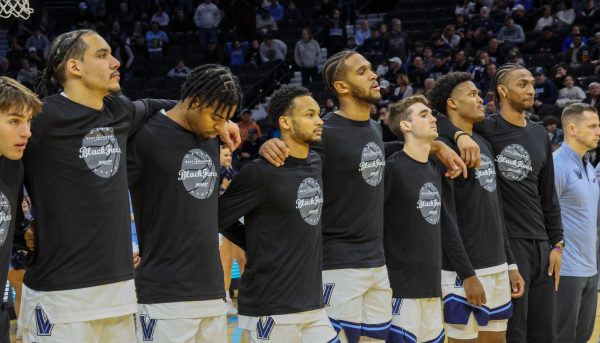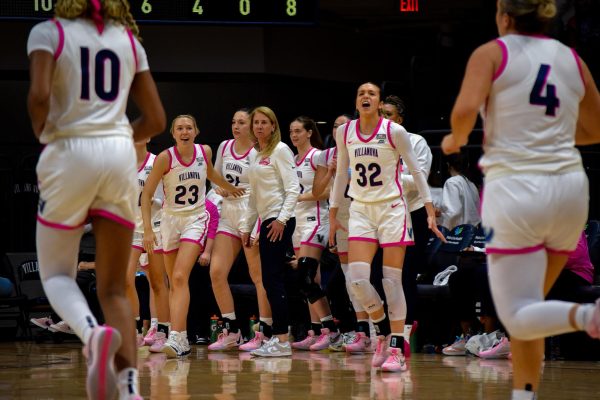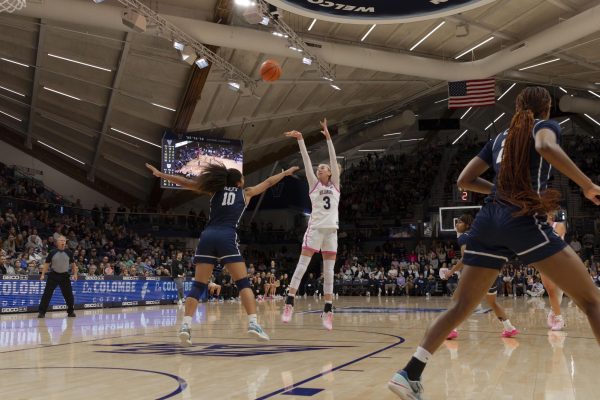Villanova Athletics Celebrates Black History Month
Courtesy of @VUCoachJayWright, Twitter
Kenny Harrison was the first Black athlete to play for Villanova basketball.
February 17, 2021
Villanova Athletics kicked off its celebration of Black History Month on Feb. 1 with a message from Director of Athletics Mark Jackson and Assistant Athletic Director for Compliance Malcolm Grace. The theme for this year’s celebration is “Black Family: Representation, Identity, and Diversity,” exploring the complexities of the Black family and its importance in the understanding of Black history. In their address to the students of Villanova, Jackson and Grace invited all members of the community to join them as Villanova Athletics recognizes different athletes, coaches and staff who have impacted the University. The department will continue to highlight the “moments, milestones, and memories” created by Black Villanovans, contributing to the story of Wildcat sports.
The pair acknowledged the shortcomings of the department and University in their historical treatment of diversity. They emphasized the ongoing work of the UNITAS committee within the athletic department. This organization strives to give a voice to all athletes while building an inclusive environment for students to thrive. Working with the Office of Diversity, Equity and Inclusion, the Office of Intercultural Affairs and a swath of other on-campus groups, the committee established partnerships since its conception in 2017 to further its goal. Despite the progress made by the UNITAS committee, Jackson and Grace recognized the importance of remaining committed and focused on creating an inclusive university.
“We must remember [B]lack history is American history, it is Villanova history,” Jackson said.
The Villanova swim team, water polo team and crew team have honored some of their Black athletes. Jesse Marsh is a junior Communication major on the swim team. He left his home of Kingston, Jamaica to attend Villanova, but he has not forgotten his roots. Per his statement on the Villanova Swim Twitter, Marsh wants to provide opportunities for people in Jamaica, the same opportunity he received to swim in the United States.
Joia McKinney is a sophomore Communication major from Chicago, Illinois. This is only her second year on the water polo team, but her legacy has always been on her mind. Having built tight relationships with other Black athletes at Villanova, McKinney wants to help provide an open line of communication for Black student-athletes to speak about issues involving race.
Zoe Barnes is a junior Psychology and Philosophy double major from Washington D.C. For her, it has always been about selflessness. From an early age, her parents taught her that caring for others is vital. As such, she has spent her time at Villanova looking to improve and “challenge the culture” of the school, building a brighter future for Black student-athletes.
Villanova Athletics has also spotlighted trailblazing Black student-athletes from the school’s past. Jay Wright has featured some early men’s basketball players who played a pivotal role in the team’s integration. Kenny Harrison was the first Black men’s basketball player to play for Villanova, featured in 65 games for the Wildcats during the late 1950s.
Wright recognized a distinguished group of players from the 1960s: George Raveling, Hubie White and Wali Jones.
Raveling, a member of the Basketball Hall of Fame, impacted college basketball long after his tenure at Villanova. He broke barriers in the coaching world working at USC, Washington State and Iowa State, three schools with a high percentage of white students. Raveling was an assistant coach for the US national team, receiving a gold medal in 1988 for the team’s Olympic performance.
White starred for the Villanova basketball team in the early 1960s, earning three all-Big Five player and two all-State awards. He spent four years playing professionally before turning to what his father told him was most important: education. White received a master’s degree at the University of Pennsylvania and worked for many years for the government of Philadelphia.
Jones played an illustrious career for Villanova and the Philadelphia 76ers. He starred on the 1967 finals team in Philadelphia, securing the championship with a 27-point performance in game six. He shared the court with some of the greatest basketball players of all-time but also helped shape Villanova athletics into what they are today.
Villanova Athletics invites all students to take part in its celebration of Black History Month, honoring Black Villanovans and their impact on Wildcat Athletics.

